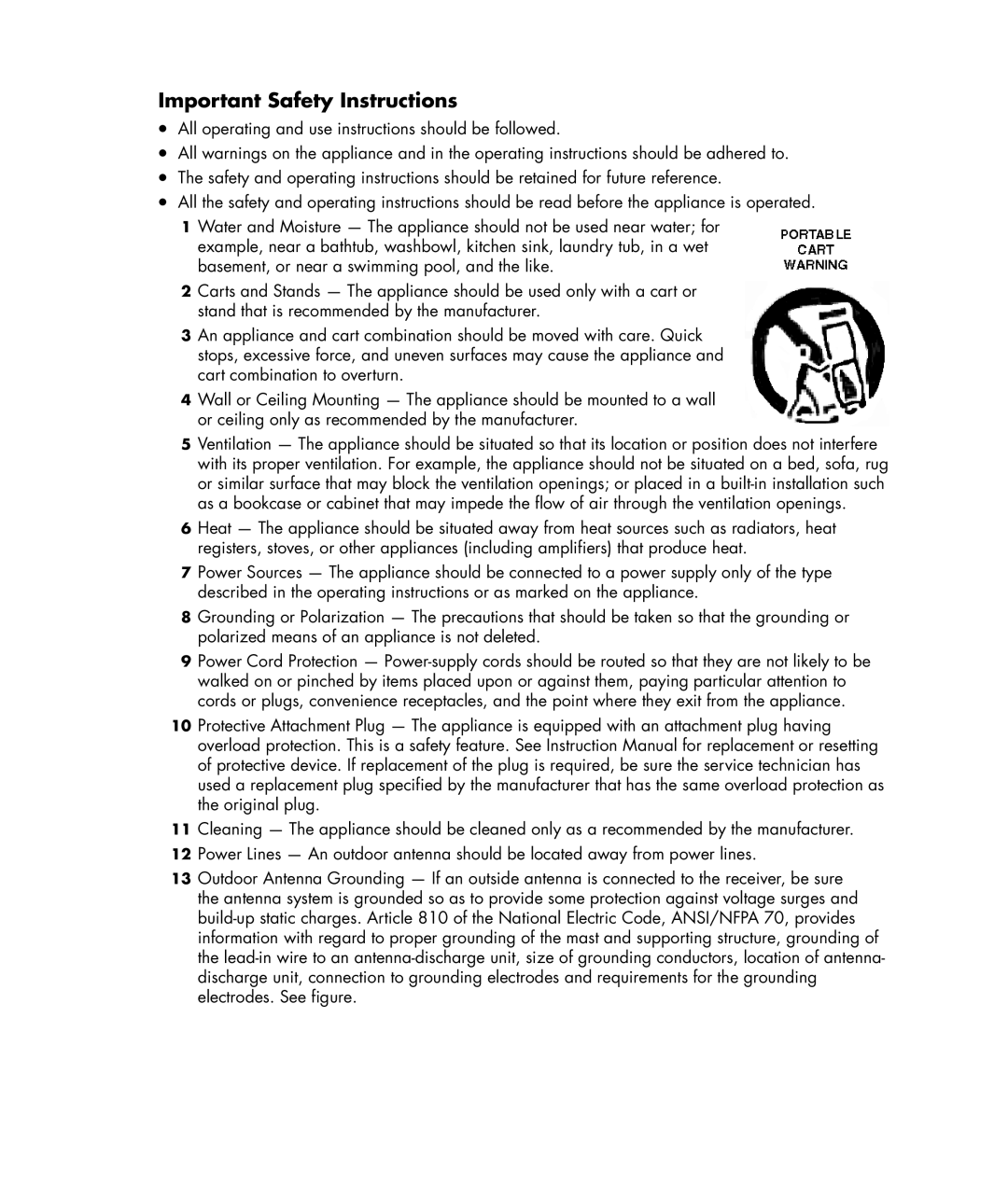
Important Safety Instructions
• All operating and use instructions should be followed.
• All warnings on the appliance and in the operating instructions should be adhered to.
• The safety and operating instructions should be retained for future reference.
• All the safety and operating instructions should be read before the appliance is operated.
1 Water and Moisture — The appliance should not be used near water; for example, near a bathtub, washbowl, kitchen sink, laundry tub, in a wet basement, or near a swimming pool, and the like.
2 Carts and Stands — The appliance should be used only with a cart or stand that is recommended by the manufacturer.
3 An appliance and cart combination should be moved with care. Quick stops, excessive force, and uneven surfaces may cause the appliance and cart combination to overturn.
4 Wall or Ceiling Mounting — The appliance should be mounted to a wall or ceiling only as recommended by the manufacturer.
5 Ventilation — The appliance should be situated so that its location or position does not interfere with its proper ventilation. For example, the appliance should not be situated on a bed, sofa, rug or similar surface that may block the ventilation openings; or placed in a built-in installation such as a bookcase or cabinet that may impede the flow of air through the ventilation openings.
6 Heat — The appliance should be situated away from heat sources such as radiators, heat registers, stoves, or other appliances (including amplifiers) that produce heat.
7 Power Sources — The appliance should be connected to a power supply only of the type described in the operating instructions or as marked on the appliance.
8 Grounding or Polarization — The precautions that should be taken so that the grounding or polarized means of an appliance is not deleted.
9 Power Cord Protection — Power-supply cords should be routed so that they are not likely to be walked on or pinched by items placed upon or against them, paying particular attention to cords or plugs, convenience receptacles, and the point where they exit from the appliance.
10 Protective Attachment Plug — The appliance is equipped with an attachment plug having overload protection. This is a safety feature. See Instruction Manual for replacement or resetting of protective device. If replacement of the plug is required, be sure the service technician has used a replacement plug specified by the manufacturer that has the same overload protection as the original plug.
11 Cleaning — The appliance should be cleaned only as a recommended by the manufacturer.
12 Power Lines — An outdoor antenna should be located away from power lines.
13 Outdoor Antenna Grounding — If an outside antenna is connected to the receiver, be sure the antenna system is grounded so as to provide some protection against voltage surges and build-up static charges. Article 810 of the National Electric Code, ANSI/NFPA 70, provides information with regard to proper grounding of the mast and supporting structure, grounding of the lead-in wire to an antenna-discharge unit, size of grounding conductors, location of antenna- discharge unit, connection to grounding electrodes and requirements for the grounding electrodes. See figure.
